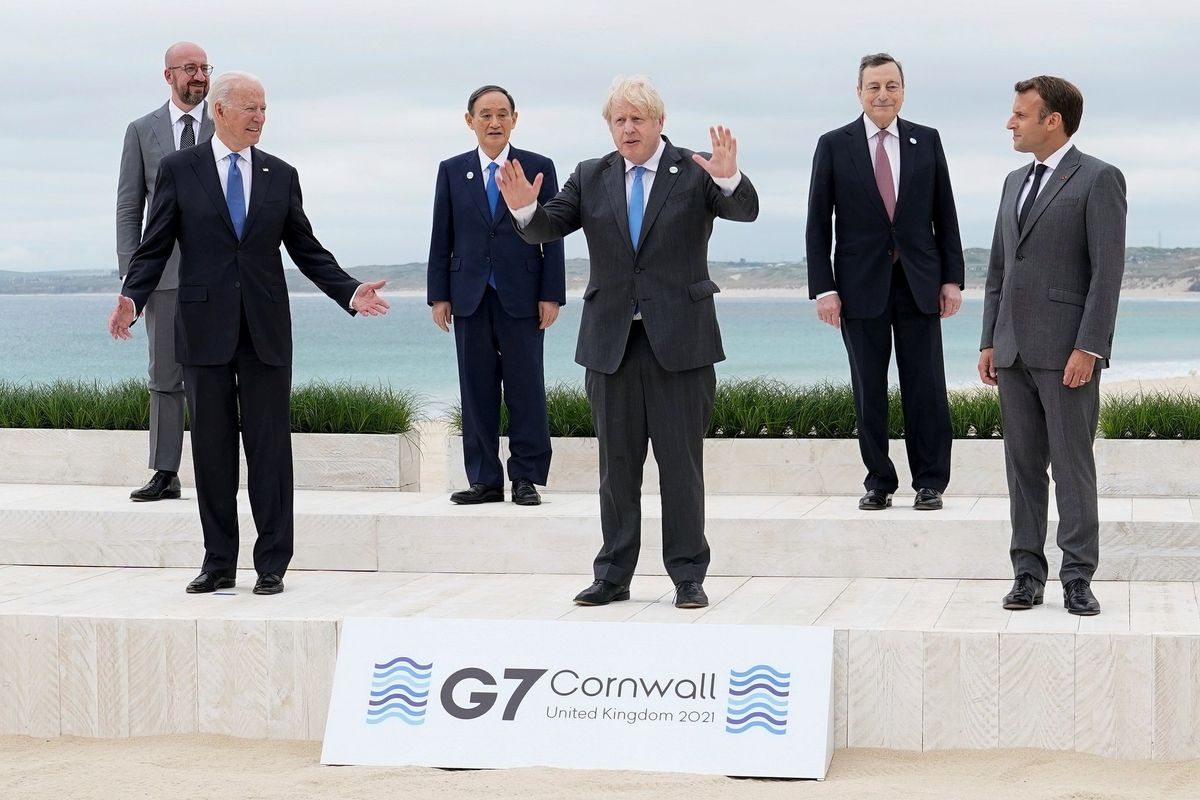How will the G-7 deal with challenges in China going forward?

A few minutes every morning is all you need.
Stay up to date on the world's Headlines and Human Stories. It's fun, it's factual, it's fluff-free.
China has been working to make it harder for sanctions to do much by passing laws that punish countries that go along with American sanctions.
What exactly happened at the G-7 conference?
- A three-day summit wrapped up this past weekend in the United Kingdom that included leaders from all seven of the G-7 member economies: the United States, the UK, Canada, Germany, France, Japan and the European Union.
- At the summit, one of the main points of discussion was how to deal with challenges in China, specifically on human rights issues, like the treatment of Uyghur Muslims in Xinjiang where many have been put into forced labor camps.
- Several Western companies that operate in China have found themselves pressured by Western consumers because of their involvement with Uighur forced labor. But those companies that have tried to push back in China have been met with harsh boycotts.
- At the conference, there seemed to be a split between the leaders about exactly how to deal with China. The US, Britain and Canada said that being harder on China was important.
- The rest of the group, Japan, Germany, France and the EU, took a softer approach. Those four have received massive investment from China and taking a harder line could deal a blow to their economies.
How is this effort any different from what was going on before?
- In recent history, one of the best ways countries could push back against China (whether it’s for human rights reasons or something else) has been to put sanctions on Chinese individuals and countries.
- The problem is that a country putting sanctions on China typically means that China will put sanctions back on the country in retaliation. This creates a sort of endless cycle where countries go back and forth with China with no clear end.
- Even more, China has been working to make it harder for sanctions to do much by passing laws that punish countries that go along with American sanctions.
- So now, instead of each country individually trying to put sanctions on China, groups like the G-7 are trying to figure out ways to work together to put pressure on China, whether it’s economic pressure, or something else.
So did they come up with something new?
- Well, yes and no.
- The big thing that the G-7 did manage to do was to say in its statement at the end of the summit that it would be holding China to higher standards on things like human rights going forward, asking the country to, “respect human rights and fundamental freedoms.”
- But the group didn’t manage to come up with any concrete ways it’s going to do that. There was no plan to be tough on China, no threats of economic sanctions and no group solution to the problem.
- That being said, the group agreeing on a stance on China is a big step. Under the Trump administration, the hard line on China mostly came from the US, with not a lot of coordinated effort internationally. Now, it looks like that might be changing as, even without a concrete plan, major Western economies agree that a harder stance is important.
Have a tip or story? Get in touch with our reporters at tips@themilsource.com




Comments ()